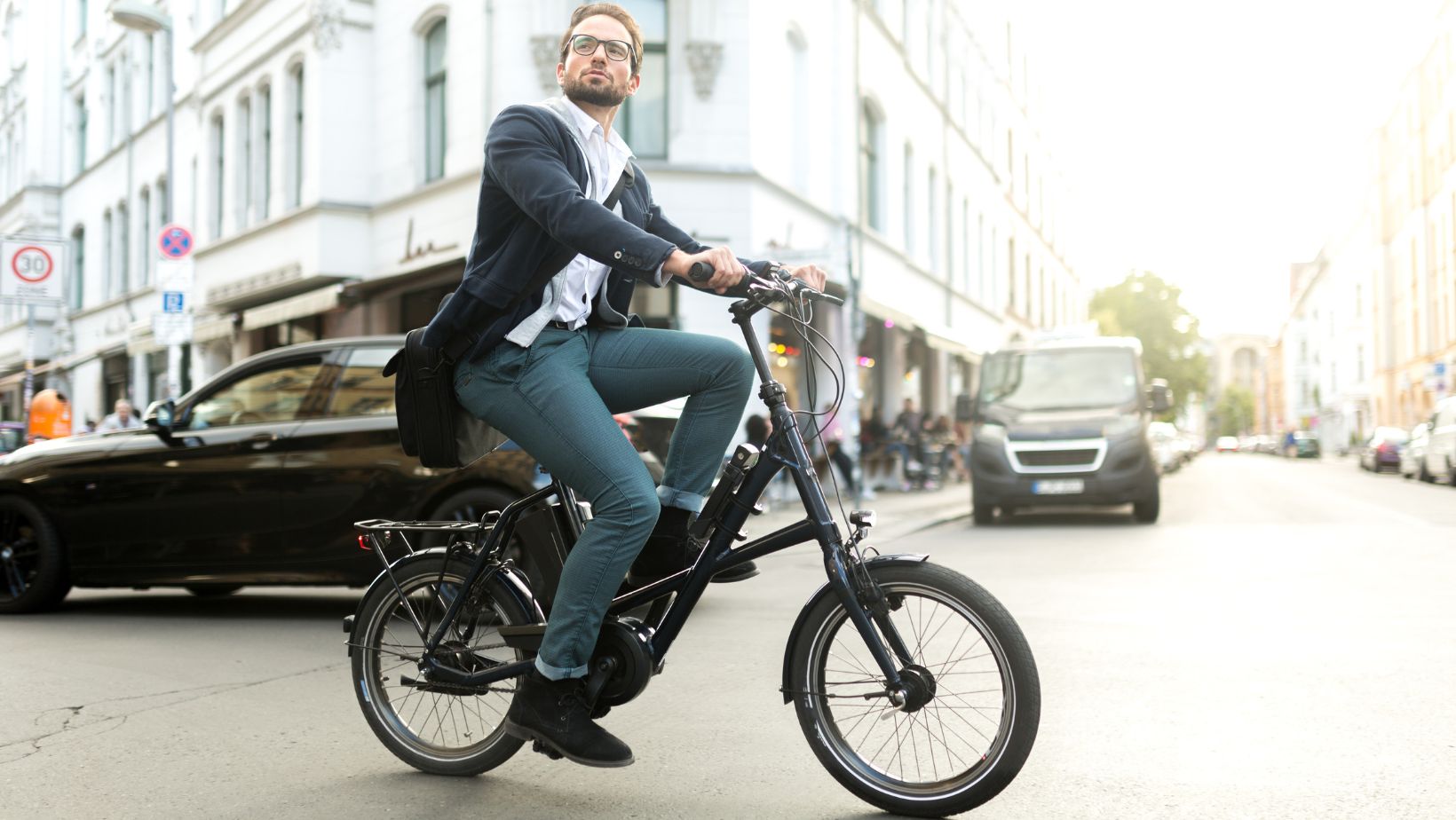
Electric bikes, commonly known as e-bikes, have become a significant part of modern transportation. Over the years, these innovative vehicles have evolved, offering a perfect blend of traditional cycling with the added benefit of electric assistance. As environmental concerns rise and cities become more congested, e-bikes provide a viable and sustainable solution for personal mobility.
This article explores how e-bikes have transformed transportation over the years, tracing their journey from early prototypes to their current status as a popular mode of transport worldwide.
Rise in Popularity
In recent years, e-bike sales have surged globally, with more people recognizing their benefits. According to industry reports, e-bike sales have grown exponentially, with millions of units sold each year. This increase can be attributed to several factors, including urbanization, environmental awareness, and the desire for more sustainable transportation options.
E-bikes offer a versatile solution for various commuting needs, whether it’s a short trip to the grocery store or a daily commute to work. They provide an efficient alternative to traditional bicycles and cars, especially in congested urban areas where parking and traffic are major concerns. The ability to cover longer distances with less effort has made e-bikes an attractive option for a wide range of users, from young professionals to retirees.
Technological Advancements
Over the decades, e-bikes have undergone significant technological advancements, making them more efficient, reliable, and user-friendly. One of the most notable improvements has been in motor technology.
Motor technology has seen remarkable progress. Take, for instance, the HERO all-terrain carbon fiber ebike, which has a cutting-edge 750W mid-drive motor. This powerful motor promises a powerful delivery, offering up to 160 Nm torque. Such advancements enable riders to tackle challenging inclines and trails effortlessly.
The HERO e-bike exemplifies how far e-bike technology has come, providing a smooth, powerful ride that caters to both urban commuters and adventure seekers.
E-Bikes and Urban Mobility
One of the most significant impacts of e-bikes has been on urban mobility. Cities worldwide are grappling with increasing traffic congestion and pollution. E-bikes offer a practical solution to these problems, promoting cleaner and more efficient transportation. By integrating e-bikes into urban transport systems, cities can reduce traffic congestion, lower carbon emissions, and improve air quality.

E-bikes also enhance the flexibility of urban transport. They can be used in conjunction with public transit systems, allowing commuters to cover the first and last miles of their journey with ease. Many cities have introduced bike-sharing programs that include e-bikes, making them accessible to a broader audience. This integration into public transport systems encourages more people to opt for e-bikes, further alleviating traffic congestion and reducing reliance on cars.
Environmental Impact
E-bikes are not only convenient but also environmentally friendly. Unlike cars, these bikes produce zero emissions, making them a sustainable alternative for short to medium-distance travel. As cities strive to meet climate goals and reduce their carbon footprint, e-bikes play a crucial role in promoting greener transportation options.
By choosing e-bikes over traditional motor vehicles, individuals can play a part in reducing air pollution and greenhouse gas emissions. This shift towards eco-friendly transportation helps mitigate the effects of climate change and promotes healthier urban environments. Moreover, the production and maintenance of e-bikes have a lower environmental impact compared to cars, further enhancing their appeal as a sustainable transportation choice.
Health and Fitness Benefits
E-bikes offer a unique blend of physical activity and ease of use, making them an excellent choice for those looking to improve their health and fitness. Unlike traditional bicycles, e-bikes provide pedal-assist options that make riding less strenuous, encouraging people of all fitness levels to ride more frequently. This increased accessibility is particularly beneficial for older adults or those with physical limitations who might find regular cycling too challenging.
Studies have shown that e-bike riders tend to cycle more often and for longer distances than those using traditional bikes. This increase in physical activity contributes to better cardiovascular health, improved muscle strength, and enhanced mental well-being. The ability to switch between manual pedaling and electric assistance also allows riders to adjust their workout intensity, making e-bikes a versatile fitness tool.
Cost-Effectiveness
When compared to cars and other motor vehicles, e-bikes are a highly cost-effective transportation option. The initial purchase price of an e-bike is significantly lower than that of a car, and the ongoing costs of maintenance, insurance, and fuel are also much cheaper. E-bikes require minimal maintenance, and they are very cost-effective.
For daily commuters, the savings can be substantial. E-bike owners save on parking fees, tolls, and public transportation costs. Additionally, many cities offer incentives and subsidies for e-bike purchases, further reducing the overall expense. Over time, the financial benefits of owning an e-bike make it a smart investment for individuals looking to reduce their transportation costs while enjoying the convenience and benefits of cycling.
Government Policies and Incentives
Governments around the world are recognizing the benefits of e-bikes and are implementing policies to encourage their use. These policies include financial incentives, such as rebates and tax credits for e-bike purchases, as well as investments in infrastructure to support e-bike riders. For example, many cities are developing dedicated bike lanes, secure parking facilities, and charging stations to make e-bike commuting safer and more convenient.

In some regions, governments are also integrating e-bikes into public transportation systems through bike-sharing programs. These initiatives make e-bikes accessible to a broader population and promote their use as a viable alternative to cars. By supporting e-bike adoption through favorable policies and infrastructure improvements, governments can enhance urban mobility, reduce traffic congestion, and achieve environmental goals.
Future of E-Bikes
The future of e-bikes looks promising, with ongoing advancements in technology and growing acceptance worldwide. Innovations in battery technology are expected to enhance the range and efficiency of e-bikes, making them even more practical for long-distance travel. Additionally, improvements in motor design and smart features, such as connectivity and integrated GPS, will continue to enhance the riding experience.
As urbanization continues and cities prioritize sustainable transportation, e-bikes will play a crucial role in shaping the future of mobility. The rise of smart cities, with integrated transportation systems and green initiatives, will further drive e-bike adoption. However, challenges such as regulatory issues, infrastructure development, and market competition need to be addressed to ensure the continued growth and success of e-bikes.
Conclusion
E-bikes have come a long way from their early prototypes to becoming a transformative force in modern transportation. They offer a perfect blend of convenience, sustainability, and health benefits, making them an attractive option for a wide range of users. From technological advancements and rising popularity to their significant impact on urban mobility and the environment, e-bikes have reshaped how we think about personal transportation.
As governments and cultures around the world continue to embrace e-bikes, their role in future transportation systems will only grow stronger. With ongoing innovations and supportive policies, e-bikes are set to become a cornerstone of sustainable urban mobility, offering a cleaner, healthier, and more efficient way to navigate our cities. The journey of e-bikes is a testament to how innovation and practicality can come together to create positive change in our daily lives.















